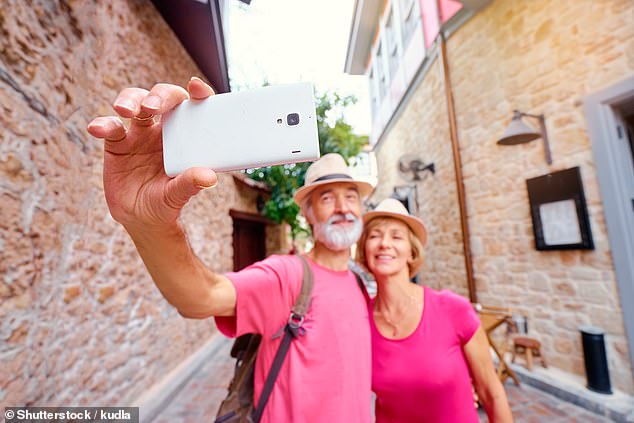Many Australians travel abroad for cosmetic treatments and touch-ups, but new research suggests half the job could be done by simply hopping on a plane.
Academics at Edith Cowan University in Perth have discovered that as well as the mental and physical benefits associated with travel, it can also make people look younger.
“Aging… although it cannot be stopped, it can be slowed down,” said researcher Fangli Hu.
Exposure to new cultures, languages, environments and relaxing activities can stimulate stress responses and elevate metabolic rates, fostering the body’s self-organizing capabilities, the study says.
It may also trigger an adaptive immune system response.
“Simply put, the self-defense system becomes more resilient,” Ms. Hu explained.
‘Hormones that promote tissue repair and regeneration and support the functioning of the self-healing system may be released.’
Physical exercise can improve blood circulation, accelerate nutrient transport and help eliminate waste to maintain self-healing, and moderate exercise is beneficial to bones, muscles and joints, as well as supporting the body’s anti-wear system.
Academics at Edith Cowan University in Perth have discovered that, in addition to the mental and physical benefits associated with travel, it can make people look younger by slowing down the ageing process.
Australians are well aware of the mental health benefits of time off work, with more and more companies including time off in their employment contracts and four-day weeks a hot topic.
But its anti-ageing benefits are revealed in the world’s first study to apply the theory of entropy (a tendency towards death) to tourism.
“Tourism is part of a healthy lifestyle that can potentially contribute to physical and mental health and promote healthy ageing,” said Ms Hu.
‘Travelling allows you to immerse yourself in new surroundings, especially therapeutic landscapes such as forests and beaches, which can help reduce stress and improve people’s mental wellbeing.’
Being away from the hustle and bustle, people are more likely to be active, adventurous and interactive.
“Traveling can promote physical activity, such as walking, hiking, cycling, many activities that can improve cardiovascular health, metabolism, muscle tension and many other aspects of body functionality,” said Ms. Hu.

Anti-aging benefits of travel revealed in world-first study led by researcher Fangli Hu
“It can force us to interact – interacting with other tourists, locals or even animals can boost mood. It can reduce feelings of loneliness and improve cognitive function. Travel can even improve healthy eating – trying fresh, local food.”
Of course, not everything about traveling is pleasant or relaxing. Who hasn’t missed a connection, eaten something that made them feel sick, or waited on the conveyor belt for a lost suitcase?
“Only positive tourism experiences can have potential health benefits,” said Ms Hu.
“Negatives can cause health problems.”
But that doesn’t mean there’s a one-size-fits-all approach to a successful vacation.
Everyone has different expectations and needs and should weigh their financial, health and access requirements before booking a trip.
There is no need to spend a lot, Ms. Hu said.
“Even weekend trips can have a potential health benefit. It depends on each person’s situation.”


